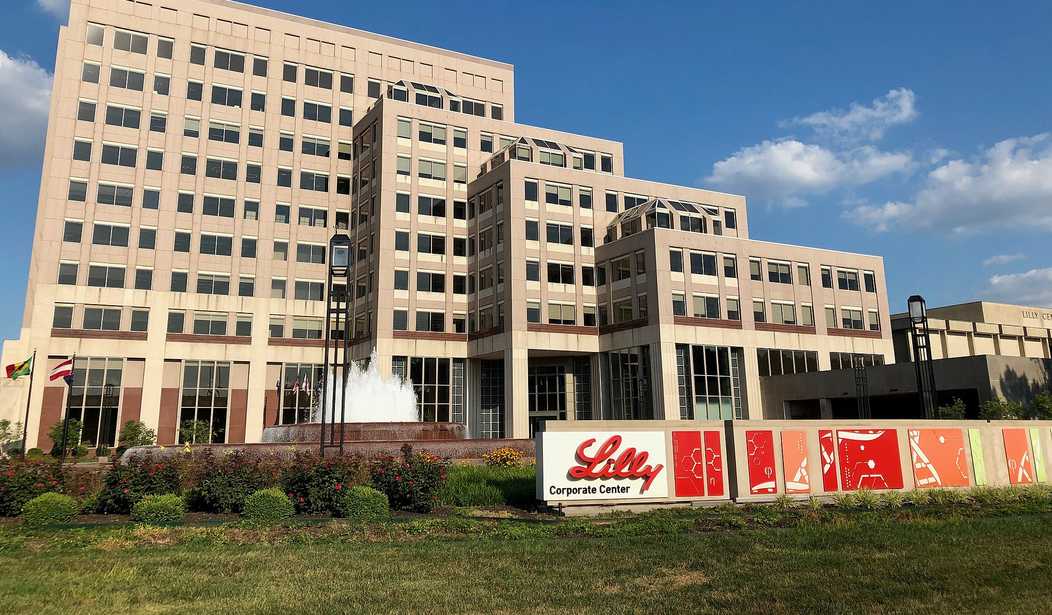On Friday, the Indiana legislature passed a law banning abortions after 10 weeks of gestation with exceptions for rape, incest, and the life or health of the mother. There’s also a carveout in the law if the baby in the womb has a “lethal anomaly.”
Gov. Eric Holcomb signed the bill into law not long after the legislature completed its vote. Major corporations and business interests in the Hoosier State didn’t waste much time condemning the law either.
One of the state’s largest employers, pharmaceutical titan Eli Lilly, issued a statement on Saturday expressing its displeasure with the law, pointing out that the law would hinder its efforts to recruit new employees and even stating that the company would look outside of its home state for further expansion.
“We are concerned that this law will hinder Lilly’s — and Indiana’s — ability to attract diverse scientific engineering and business talent from around the world,” the statement read. “Given this new law, we will be forced to plan for more employment growth outside our home state.”
Engine manufacturer Cummins issued a statement of its own, noting that the new law makes it difficult for Cummins to attract new talent.
“For Cummins to be successful it is critical that we have a safe and welcoming workplace, and communities where we embrace our difference and enable all employees to thrive, the statement read in part. “As we continue to grow our footprint with a focus on selecting communities that align with our values and business goals, this law will be considered in our decision-making process.”
Salesforce, a company with a reliable track record of siding with left-wing causes, has over 2,000 employees in Indiana but hasn’t spoken out on the new law yet.
For VIP Members: Get Ready for the Next Stage of Abortion Misinformation
Once upon a time, conservatives could count on chambers of commerce to take a more conservative line as they sided with business interests, but not anymore. The Indiana Chamber of Commerce pounced on the new law with its statement, which decries the legislature for not taking into account the law’s potential impact on tourism.
“Such an expedited legislative process — rushing to advance state policy on broad, complex issues — is, at best, detrimental to Hoosiers, and at worst, reckless,” the statement from the chamber read. “Will the Indy region continue to attract tourism and convention investments?”
When Indiana passed a religious freedom law in 2015, it lost roughly $60 million dollars in convention business, leading then-governor Mike Pence and the state legislature to revise the law, watering it down. Atlanta faced a similar situation last year when Georgia passed an election integrity law. Left-wing forces, led by Stacey Abrams, lied about the new law and forced Major League Baseball to remove the All-Star Game from the Braves’ home stadium. The move cost Atlanta untold millions in business, and many of the businesses that the move hurt were minority-owned.
Georgia faced a similar backlash to its abortion restrictions, which the legislature passed in 2019. Film and television companies threatened to pull up stakes from the Peach State, but few, if any, did. So it remains to be seen if these companies in Indiana will actually follow through on their threats.
Albert Mohler hit the nail on the head when he said that what’s going on in Indiana “tells us that the fault lines of American culture, changing as fast as they are, are cracking along moral and political lines that now include American corporations, chambers of commerce and others. And you’ll notice that those forces are now largely averse to taking any stand that might be unpopular, particularly with the influence shapers in the United States.”
These days, we can count on most large corporations to take sides with the far-left on most any issue, so what we’re seeing in Indiana shouldn’t surprise us. Let’s just hope and pray that the state’s leaders stand firm and don’t cave to corporate pressure.










Join the conversation as a VIP Member